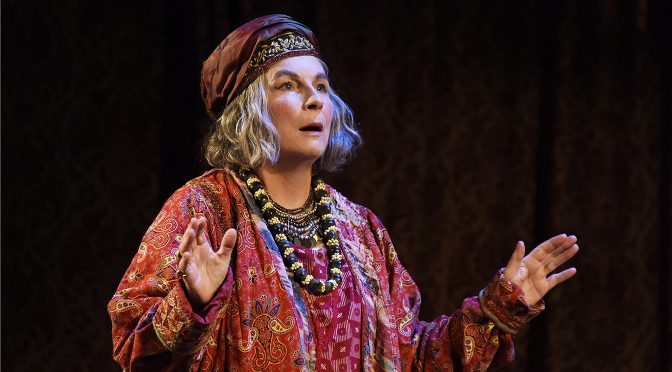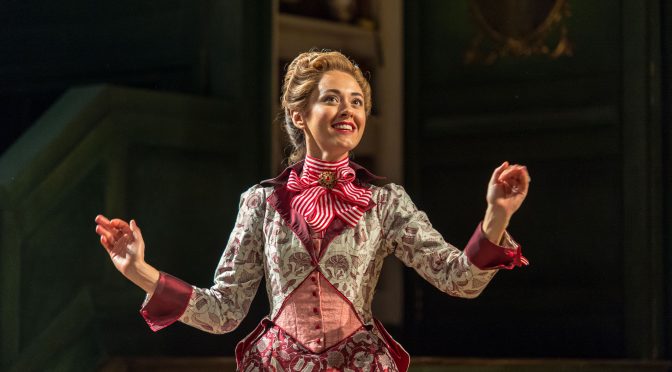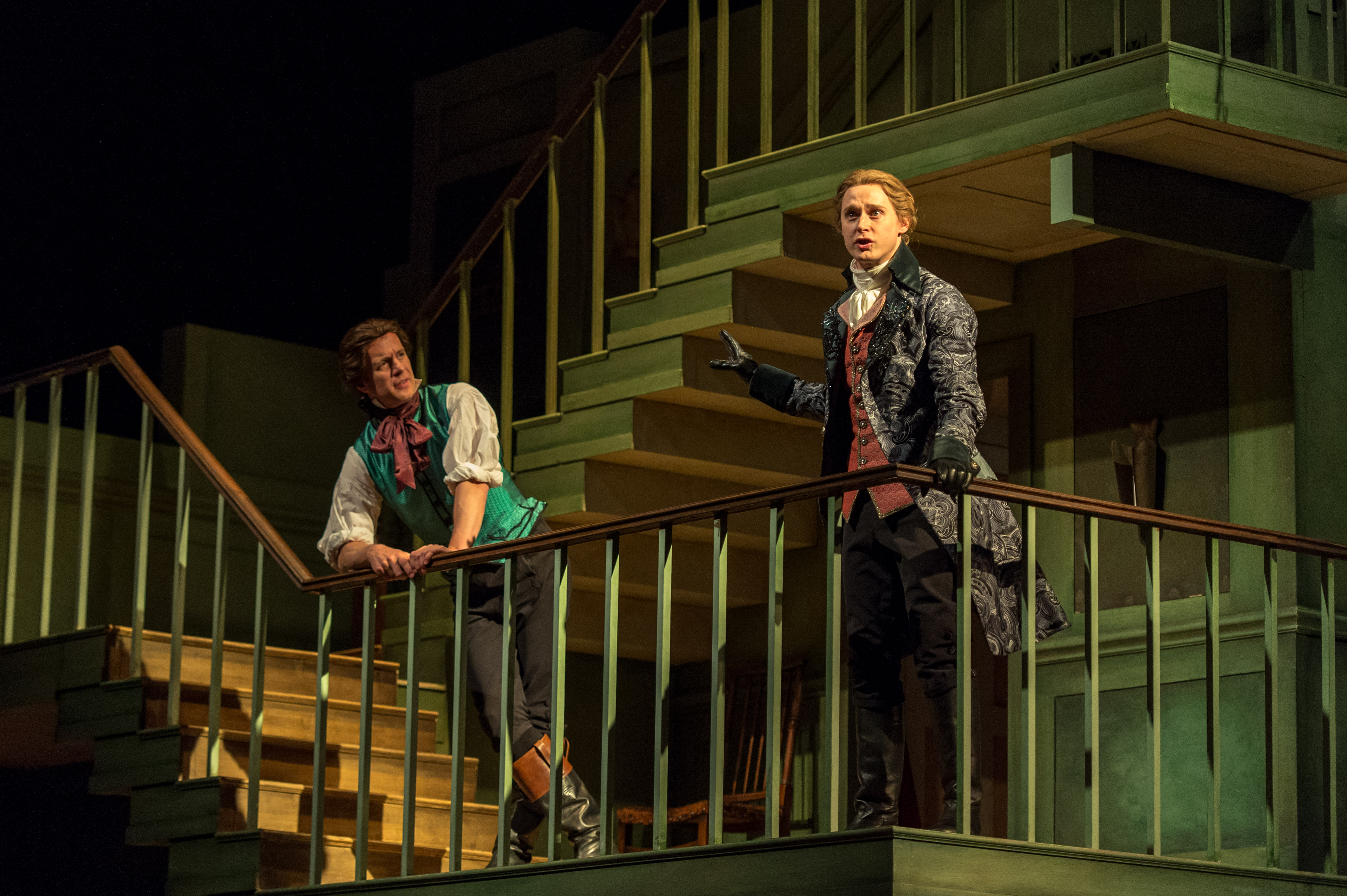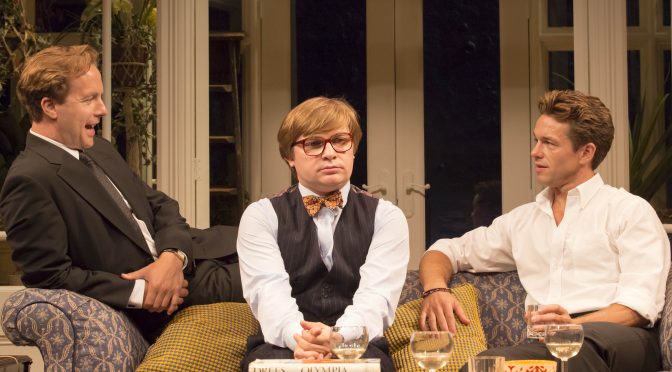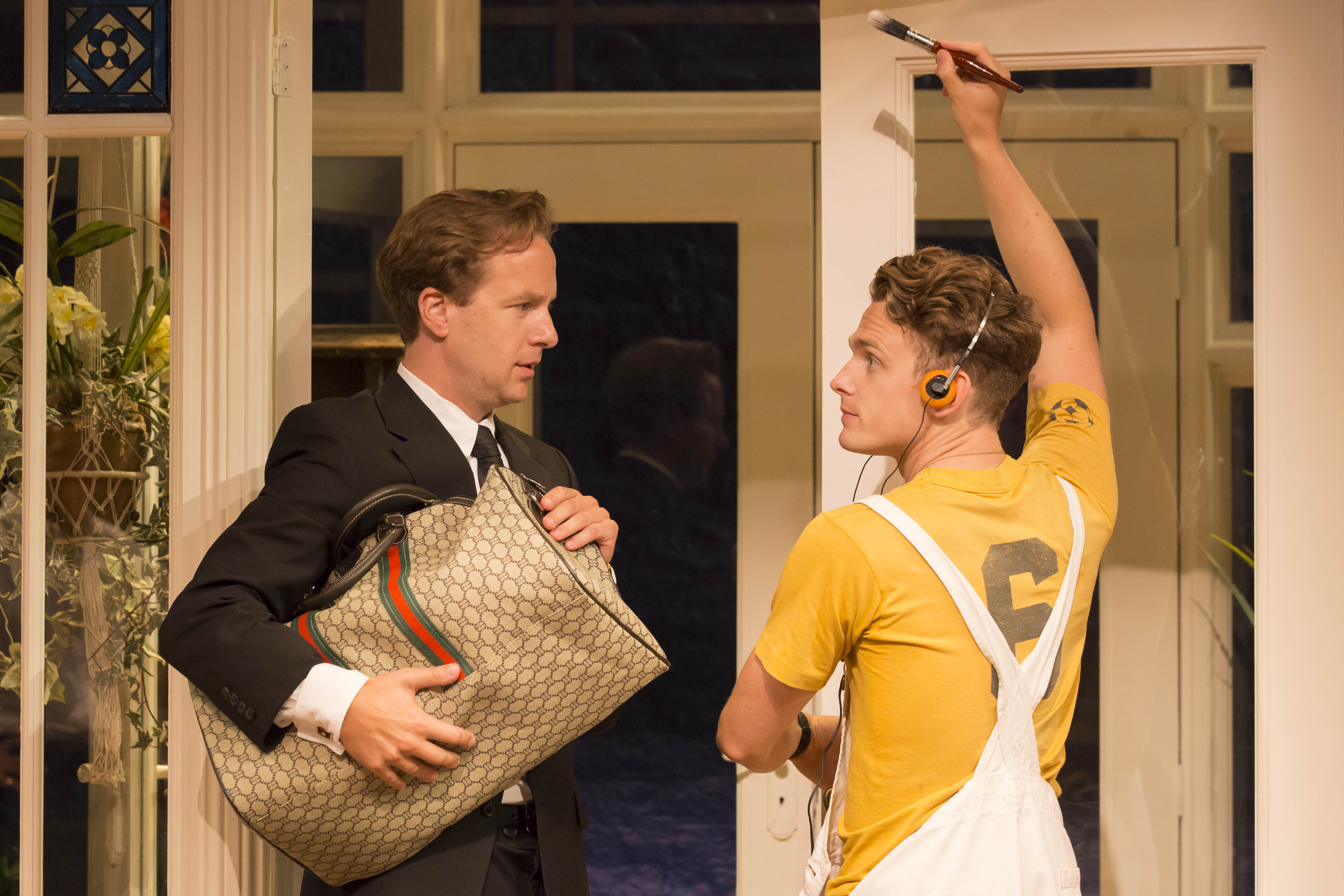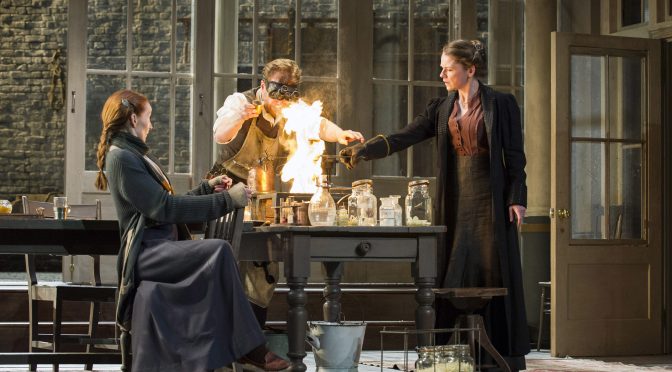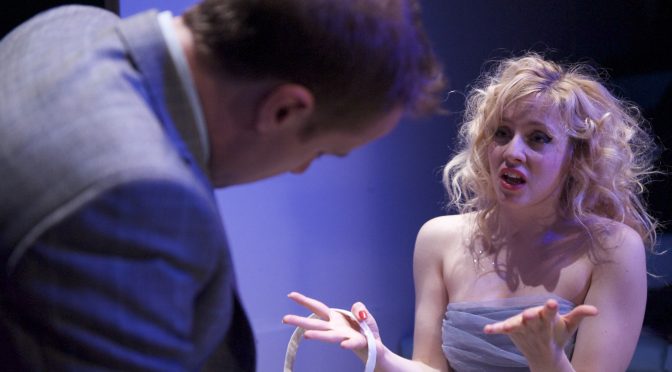Richard Eyre’s revival of Noël Coward’s supernatural comedy has bells and whistles as well mentioning smells. Funny, polished and proficient, it is enjoyable”. But despite the star casting of Jennifer Saunders, the production doesn’t quite manage to sparkle.
There is plenty to impress. Anthony Ward’s grand set and illusions by Paul Kieve emphasise the spooky as Charles and Ruth are haunted by his dead wife Elvira. There are bangs, flashes and smoke. And some strange music.
As for the smells, Jennifer Saunders gives us a flatulent Madame Arcati! As the spiritualist whose séance coincides with the return of Elvira, this key role gets the over-the-top performance it deserves. And some big eyebrows. You don’t need to be a psychic to predict Saunders will do well: she proves value for money with an impressive physicality that energises the character.
While other performances are accomplished, they are less inspiring. Geoffrey Streatfeild is surprisingly flat as novelist Charles Condomine. It’s easy to see his character as a stand in for Coward himself, but there’s little sense of complexity to the part. It comes as a surprise when either wife gets vicious – he just seems amiable and there should be more.
Both wives are more interesting than Charles. There’s no shortage of stage presence. But Eyre’s direction curbs the performances: Madeleine Mantock spends nearly all her time as Elvira on tiptoes while Lisa Dillon’s Ruth makes silly noises to get laughs. Delivery of the lines is very fast. And while this is impressive technically, it means Coward’s wit is poorly served. There are jokes that are just abandoned for the sake of speed.
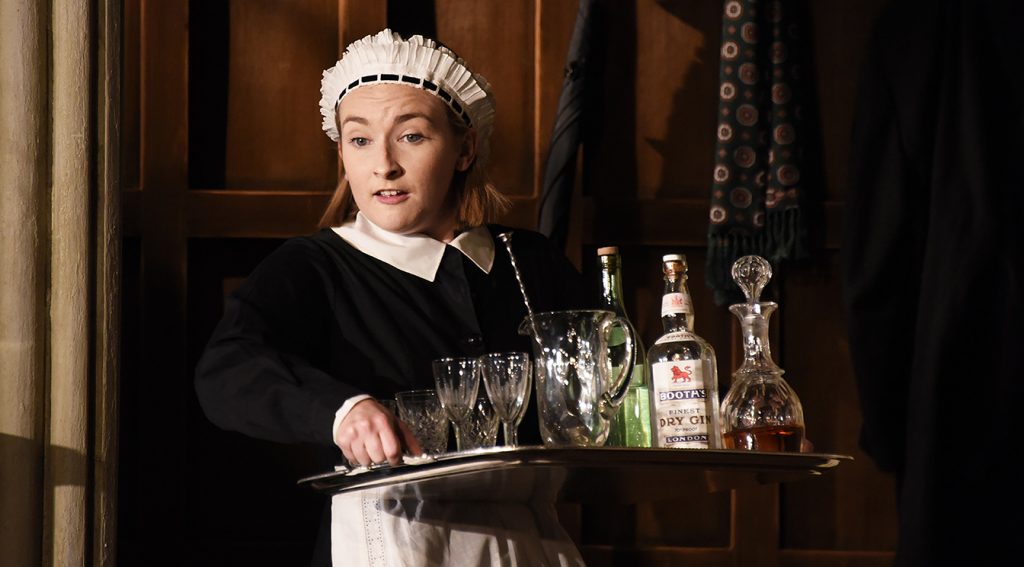
Thankfully, the production isn’t just the Jennifer Saunders show. However loved, focusing on one performer doesn’t make for good theatre. Rose Wardlaw’s turn as the Condomine’s maid, Edith, is a real crowd-pleaser. Again, the comedy is physical and there’s a great spooky moment for her. Saunders and Wardlaw make the show fun if not quite as fantastic as it should be.
Until 6 November 2021
Photos by Nobby Clark

